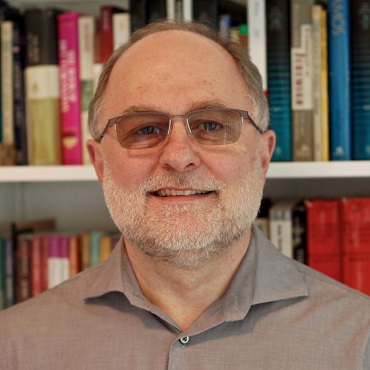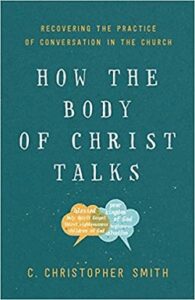
Tim Dickau is director of CItyGate and will oversee ‘Creating Conversation.’
Creating Conversation: This weekly editorial gives opportunity for people to speak to the Church in Vancouver about issues they believe are vital for the church to respond to.
One of the goals of this weekly article is to spark dialogue – and action.
We invite you to join the dialogue on either Church for Vancouver or the new CityGate website (as long as you engage in civil conversation!).
We also invite you to use the article as a discussion starter with your church small group, your church staff, your friends or your neighbours.
Feel free to re-post the article on your own social media. Thanks for participating in the conversation!
How do we foster better conversations among different churches and Christ followers in Vancouver about issues that matter that will lead to personal and collaborative action?
That question in part is what has prompted me to work alongside Flyn Ritchie in curating a weekly opinion / editorial column in the Church for Vancouver (and on the CityGate website).
In this Creating Conversation column, I will be inviting a variety of the people who I am meeting in my role as director of CityGate to speak to the Church in Metro Vancouver. My hope is to invite people who have a vital word for our city to write an article that will stimulate our imaginations for how we might participate in the restoring and reconciling work that God’s Spirit is doing in our city.
The arrival of COVID-19 has brought a time of disorientation for many of us. I believe it has also exposed and accelerated the shifts we need to make as the Church in this era of the fading of Christendom.
One temptation during these times of disorientation is to batten down the hatches and put up the barriers outside of our own tribal groups. In this column, we are seeking to resist that temptation and to foster dialogue about the creative shifts we need to make as the Church that will empower us to share in the healing vision of God.
 Towards that end, we hope that these conversations will help us to listen to one another more carefully and talk with each other more civilly as we collectively discern how to participate in the divine reconciliation through Christ. Indeed, one of the gifts of these disorienting periods is that they remind us of our need of each other.
Towards that end, we hope that these conversations will help us to listen to one another more carefully and talk with each other more civilly as we collectively discern how to participate in the divine reconciliation through Christ. Indeed, one of the gifts of these disorienting periods is that they remind us of our need of each other.
Let me warn you though. You will not agree with everything you read in these editorials!
In seeking to address important issues like affordable housing, food security, reconciliation with First Nations, meaningful employment, inequality, climate change or secularism, we can anticipate that we will advocate for differing responses. Indeed, I am pretty sure that I will not agree with everything that is written.
Part of the intention behind this column is to foster more dialogue about important matters that we will not all agree upon. In his excellent book How the Body of Christ Talks, Chris Smith writes that his church describes itself as “a manifestation of the presence of Christ in this city because . . . no church – neither ours nor any other – is fully equivalent to Christ’s presence.”
We are the Church together. We not only have much to learn from one another, we come closer to representing the fullness of Christ when we are talking and working together.
What is more, we have a clear reason to dialogue about areas of disagreement given Christ’s call for us to be united in and through him (see John 17). Indeed, in our increasingly polarized society, I believe that one of the distinguishing marks of the church should be a willingness to keep talking through our disagreements so that we can walk alongside one another and work together where possible.
I know that is not always easy. I know that it can be frustrating when you disagree deeply with others. Nonetheless, the willingness to take a deep breath and keep talking lies at the core of our discipleship. Unity is Jesus’ idea. If we do not keep talking, it is difficult to imagine how we can bear witness to the good news that God is reconciling all things in Christ.
My hope is that you will use these editorials as stimulants for discussion with others. Each week, we will seek to model good conversation by inviting someone to also write a response to the op/ed. You can help further the conversation by bringing the dialogues in these columns to your church staff team meetings, a home group, a dialogue with your neighbours or workmates, or into a conversation with folks from another church near you.
These editorials are talking points intended to create conversations, not to shut them down.
 The organization I am the director of, CityGate, has a vision to help connect the church with our city for transformation. In my 30 years of pastoral experience, transformation so often begins and moves along because of Spirit inspired and led conversations.
The organization I am the director of, CityGate, has a vision to help connect the church with our city for transformation. In my 30 years of pastoral experience, transformation so often begins and moves along because of Spirit inspired and led conversations.
I trust that Creating Conversation might be a step towards better conversations. My hope is that these conversations will contribute towards actions that lead to transformation for us and for our City.
Next week: Jonathan Bird will tackle ‘Why churches Should and Can Respond to Food Insecurity.’
Tim’s new book has just been published: Forming Christian Communities in a Secular Age: Recovering Humility and Hope. See the accompanying review by Alan Roxburgh.
Tim will launch the book next Thursday (May 6) as part of a ‘cross country conversation’ which will also feature Jason Byassee, Anna Robbins and Shad Kabango: Addressing Our Cultural Moment with Humility and Hope.

[…] This article was originally published in Church for Vancouver. […]
This is a really important topic.
Over my 57 plus years, I have noticed that there is a profound lack of conversation across the full spectrum of the Church; and I think this is a systemic problem, due to the tendency to structure the Church, hierarchically.
Perhaps, an inadvertent effect of the pandemic upon the Church, will be a more comprehensive opportunity for conversations that move beyond this seemingly impenetrable barrier.
A brilliant initiative that I pray the Lord to shine His face upon!
Thank you for your courage to facilitate this essential dialogue.
As a Canadian who grew up in ‘Apartheid’ South Africa but returned to Canada in 1992, I have a deep interest in what you are taking on. You will be on my prayer priority list and I hope to participate in the weeks ahead.
David R